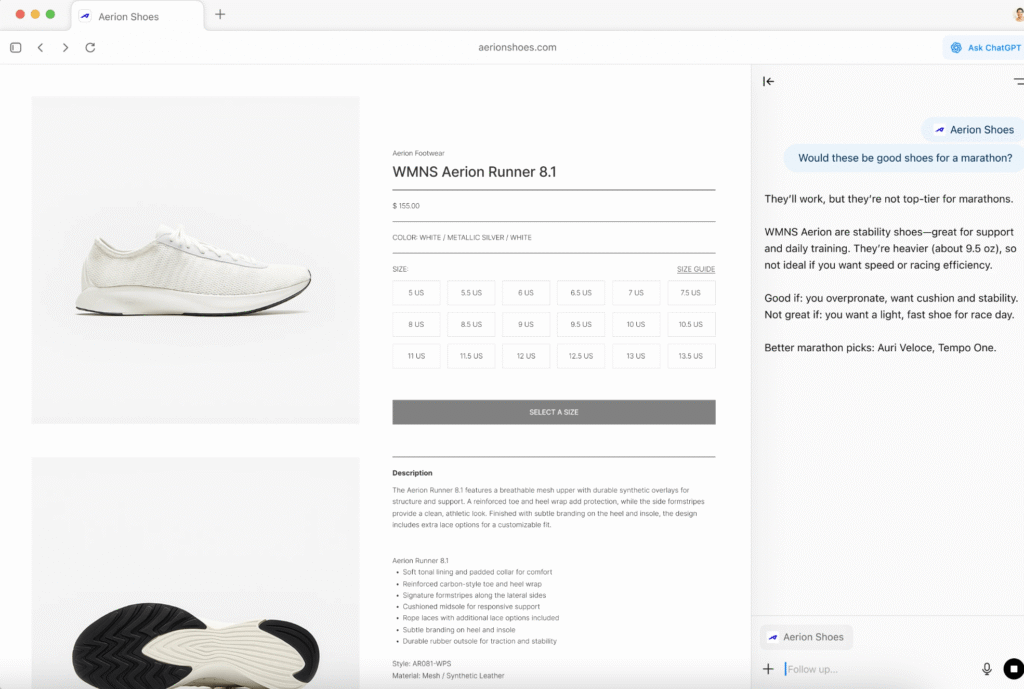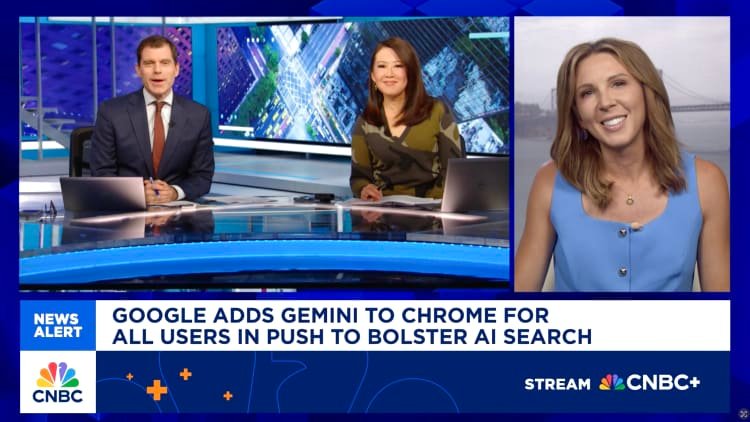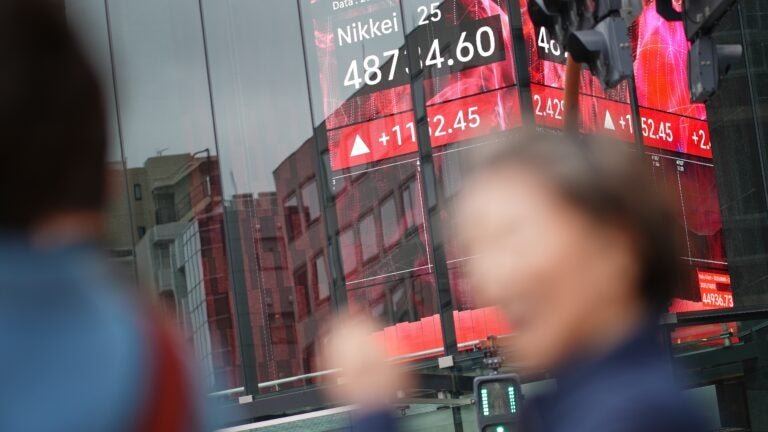Nicoletaionescu | Istock | Getty Images
It is tech’s biggest question, and there is a wide range of takes on every side.
With artificial intelligence-driven spending leading to record deals and valuations, seemingly everyone is weighing in on the AI boom — and potential bust.
Economic bubbles happen with a rapid rise in market values and asset prices in a specific area, often fueled by speculation, followed by a crash during which money is quickly taken out.
More than 1,300 AI startups now have valuations of over $100 million, with 498 AI “unicorns,” or companies with valuations of $1 billion or more, according to CB Insights.
Megacaps like Amazon, Meta, and Microsoft are spending billions on data center buildouts, and blockbuster deals are being announced left and right from OpenAI, Nvidia and others.
The deal and spending euphoria are drawing parallels to the dotcom bubble of the late 1990s and even the 2008 financial crisis.
Others see strong demand and a technological revolution with money that’s “well spent.”
Here’s what CEOs and experts have said in recent days:
We continue to see opportunity because ultimately, AI bubble or not, it boils down to real dollars being spent on real capex with a … very long runway of funding ahead.
Anneka Treon
ING global head of Private Banking, Wealth Management and Investment
Treon said that although companies are spending a staggering half of their operating cash flows on AI initiatives, there is more than enough capital to fund it.
“That source, that runway of funding, is not something that I think we need to be concerned about,” Treon said on CNBC’s “Power Lunch” last week.
Total global AI spending is expected to hit $375 billion this year, and is forecasted to reach 500 billion in 2026, according to a report by UBS. Whether these massive expenditures will actually yield expected returns on capital won’t be clear until at least more than a year from now, Treon said.
However, Treon finds the current market backdrop to be optimistic.
“You’re seeing easier monetary policy, you’re seeing easier fiscal policy, you’re seeing strong earnings growth, and you’re seeing capex booms,” she said.
We point out that the share of the economy devoted to AI investment is nearly a third greater than the share of the economy devoted to internet related investments back during the dotcom bubble. So, we think there are enough analogies there to make the call.
Jared Bernstein
former Biden CEA chairman
Bernstein told CNBC’S “Squawk Box” last week that surging asset prices and extreme valuations indicate that an AI bubble is the “likely outcome.”
He said that bubbles are defined by a vast gap between investment levels and the actual “credible expectations” for future profits.
Bernstein pointed to OpenAI, which has already made around $1 trillion in AI deals, including a $500 billion data center buildout project, despite being set to generate only $13 billion in revenue.
“You’ve got to account for future earnings,” Bernstein said. “But to us and many others, that divergence between credibly, plausible, expected future earnings and this level of investment certainly looks bubbly.”
Despite the Magnificent Seven’s spending spree on AI, Bernstein said that their profits are mostly coming from other areas like advertisements and cloud services.
“If you actually look at the AI investments, they tend to be a small share of [the profits],” Bernstein said. “So that actually contributes to the bubble hypothesis.”
I think some of the investments that we’ve seen so far is not on AI, it’s more on cloud and the power of cloud. So I don’t believe this is a bubble, but I believe this is capital that in most cases is going to be well spent.
Fink said on CNBC’s “Squawk on the Street” last week that there is definitely a “skyrocketing amount of capital” being funneled into AI, which he believes is not a sign of a bubble but rather a necessary investment for the U.S. to remain a global leader in AI technology.
“Investing in AI does not just mean investing in GPUs and chips, it means investing in HVAC and IT, investing in power grids and power supplies,” Fink said.
The BlackRock CEO said that these massive stakes will ultimately lead to some failures, but he is confident that major hyperscalers like Meta, Microsoft, and Alphabet are in a “really good position” to be winners.
“That is capitalism,” Fink said. “We’re going to have some big winners and we’re going to have some big losers … but if you have a diversified portfolio, you’re going to be fine.”
Are we in an AI bubble? Of course! … Of course we are. I mean, we’re hyped, we’re accelerating, we’re putting enormous leverage into the system.
Pat Gelsinger
former Intel CEO
Gelsinger said that although the AI-driven market is already in a bubble, it would be “several years” before he sees it ending.
“We’re displacing all of the internet and the service provider industries as we think about it today,” Gelsinger said on “Squawk Box” last week. “We have a long way to go.”
The ex-Intel CEO believes that major disruptive technologies will develop in the latter end of this decade, when companies might begin to materially benefit from them, giving the bubble plenty of time before it pops.
“That being said, it will change,” Gelsinger said. “These are radical improvements in AI efficiency that occurred this year.”
To me, the main ingredient in bubbles is psychological excess — there’s no such thing as a price too high. And I don’t detect that level of mania at this time, so I have not put the bubble label on this incident.
Howard Marks
Oaktree Capital Management co-founder
In an interview with CNBC’s Sara Eisen last week, Marks said that while there is unquestionable excitement for AI, he has not seen it reach a “critical mass of mania” that indicates a definite bubble.
“My response to date has been that the valuations are not crazy,” Marks said. “High, but not crazy. And when things are either high or low, but not crazy, you can’t make an observation that has a high likelihood of being correct.”
The veteran investor likened the current AI enthusiasm to the internet boom of the late 1990s, which correctly promised to change the world despite leaving many companies ultimately worthless.
Marks warned of common behaviors seen in “bubble psychology,” where investors will back any company with even the slightest chance of massive returns. Although he sees hints of this excessive risk-taking pattern in today’s AI boom, Marks said true bubble behavior has not been hit yet.
We’re certainly seeing lots of evidence of bubble-like behavior in the AI space. We see the kind of circular revenue deals, we see a lot of very aggressive price behavior.
Ben Inker
GMO co-head of asset allocation
Inker said on CNBC’s “Money Movers” last week that firm investments are shifting from being financed by free cash flow to relying on debts and massive stakes from Nvidia.
“It’s one thing if Microsoft or Meta wants to invest a whole bunch of money in data centers where they’ve got the cash flow for it,” Inker said. “OpenAI doesn’t, xAI doesn’t, even Oracle is issuing a lot of debt to be doing this.”
Last year, OpenAI expected about $5 billion in operating losses on $3.7 billion in revenue, and is still losing money. Inker said this makes Nvidia’s $100 billion investment in OpenAI — for building data centers backed by Nvidia chips — concerning.
“It is that this entire ecosystem has kind of run out of the capital from the cash flow of the hyperscalers, who have been funding things so far, and now needs to be funded by debt and these very strange deals between Nvidia and AMD and some of these money-losing firms that have huge capital needs,” Inker said.





